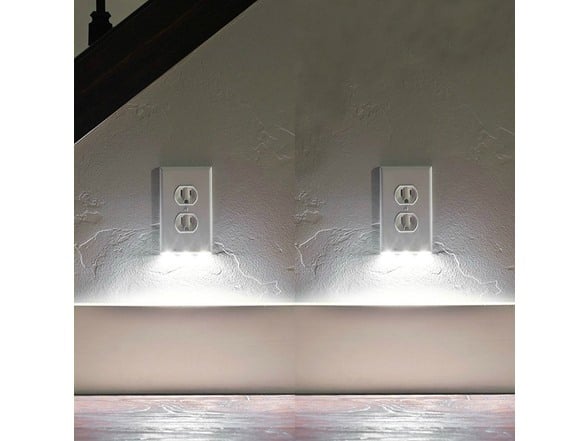Tips For Handling Electrical Repairs at Home
Electrical work can be extremely dangerous if not done properly. Even small repair jobs like changing outlets or light fixtures involve dealing with live wires that can deliver a potentially fatal shock. This is why it's crucial to take the right precautions and follow important safety guidelines when attempting any electrical repairs around the house yourself.

Nevertheless, there are those homeowners who decide to take on electrical projects to save money instead of hiring a licensed professional electrician. If you fall into this group, you need to be incredibly careful and knowledgeable about what you are doing.
The Big Don'ts for Electrical Repairs
- Don't Work on Live Wires: This is the cardinal rule; it should never be broken. Any electrical circuit you plan on working on must be completely shut off and disconnected from its power source first. Even low-voltage wires can still carry an electrical current strong enough to deliver a shock.
- Don't Overload Circuits: Make sure to never connect too many appliances, electronics, or lights to a single circuit and electrical box. This can easily overload the system and create a fire hazard from the heat buildup.
- Don't Use Underrated Wiring: Always use wiring rated for the amperage demands of the circuit and application. Using underrated wiring risks melting the insulation and causing an electrical fire.
- Don't Rush the Job: Take your time and don't cut corners when doing electrical work. It may be tedious, but even a small mistake could have devastating consequences, like a shock, burn, or fire. Patience is key.
The Big Do's for Electrical Repairs
- Do Shut Off Power at the Source: Before working on any wiring, you must shut off the circuit at the breaker panel or remove the fuse for that circuit. Use a non-contact voltage tester to verify there is no live current still running through the wires.
- Do Use Lockout Tagout Devices: When shutting off power, use specialized lockout tagout devices to prevent the breaker or disconnect switch from being inadvertently turned back on while you're working. This is a crucial safety step.
- Do Have the Right Tools: Invest in properly insulated tools rated for electrical work like pliers, wire strippers, screwdrivers, voltage testers, etc. Using the wrong tools risks damaging wires and creating hazards.
- Do Follow Code Requirements: Check what your local electrical code requires for the type of work you'll be doing. The code covers important safety requirements like grounding, box fill, wire ratings and more.
Step-by-Step Safety
- Shut Off Power First: Before touching any electrical components, you must shut off the flow of electricity to the circuit by toggling the breaker to the off position or removing the fuse. Double check that the power is off using a non-contact voltage tester held near the wires.
- Use Lockouts: Apply a lockout device to the shut off breaker or disconnect to prevent the circuit from being re-energized while you are working on it. These devices clamp onto the switch and have a lock with a tag area to write when you started working.
- Insulate Yourself: Beyond shutting off power and verifying no current, you will also want to insulate yourself from any potential electrical paths to ground. Wear rubber-soled shoes or boots with thick insulating soles. Avoid working in bare feet or with sandals on. Rubber insulating gloves rated for electrical work can provide an extra layer of protection when handling wires as well. The idea is to minimize any potential current flow through your body if you accidentally come into contact with a live wire.
- Check for Power: Use a voltage tester one more time to verify there is no electrical current running through the wires you will be handling. Old homes may have wiring issues like live knob-and-tube wiring still running power without a clear source.
- Safe Work Setup: Have a clean, stable work surface free of clutter, water, or other hazards. Use a non-conductive rubber mat designed for electrical work if possible. Make sure your footing is stable and you can easily move around if needed.
- Never Work Fatigued: Being tired, distracted or under the influence greatly increases the risks of making a mistake that could lead to devastating shocks or other injuries. Wait until you are fully rested and focused.
- Proper Wiring: When adding new wiring, splicing wires, or replacing cables, make sure to always use wires rated for the amperage demands of that specific circuit and application. Pay close attention to the wire jacket's markings.
- Use Junction Boxes: Any spliced or joined wires must run through a protective junction box that can be secured shut. The open spliced area should never be directly exposed without a cover once the work is complete.
- Safety After the Job: Once the new wiring or repaired circuit is complete and reconnected, reinstall any covers or faceplates over any open boxes. Use the correct type of cover and ensure it fits snugly without gaps.
When to Call a Pro
Some jobs are simply too complex and dangerous for DIY homeowners. You should hire a licensed, insured professional electrician for any major renovations or additions involving:
- New heavy appliance circuits (ovens, AC units, etc.).
- Upgrading service panels or sub-panels.
- Installing new circuits.
- Replacing old knob-and-tube or aluminum wiring.
- Major outlets/lighting for finished basements or additions.
- Running new wiring through existing walls.
- Any other specialized or complex electrical work.
Electrical repairs must always be taken extremely seriously. While some basic projects may seem simple enough to manage yourself, even a small mistake can create a fire risk or result in severe shock, burns, or electrocution. Take all the necessary safety precautions, invest in proper tools and materials, and know your limits.
For any major or complex electrical work around the home, call in a professional electrician to get the job done safely and up to code. The costs of hiring a licensed pro are negligible compared to the potential disasters that can occur from DIY electrical work gone wrong. Prioritize your safety and the safety of your family by knowing when a job requires the expertise of a trained electrician. With the right precautions in place, you can take on basic electrical repairs yourself, but don't let overconfidence put you or your home at risk.
-
Lulu and Georgia Long Weekend Sale Up to 70% Off Plus Extra 25% Off Clearance
The Lulu and Georgia sale is the kind of event that makes a room feel designed. Not just decorated. There are 200 plus items up to 70% off, plus extra 25% off clearance. Also, the long weekend promo is offering up to 25% off sitewide on top, with prices marked. Shop here to browse the…
-
Woot Power Tool Organizer Deal Plus Free Garage Organization Ideas You Can Do Today
The Woot power tool organizer deal is the kind of small upgrade that makes a garage feel 10 times more usable. If drills, drivers, and batteries are living in a sad pile, this is your sign. Deal: Three layer heavy duty power tool organizer Use Shop here for the deal. Why this organizer is worth…
-
Walmart Bedding Sets Under $90 That Refresh a Bedroom Fast
If we want a quick bedroom reset without a full makeover, Walmart bedding sets are the cheat code. These picks bundle the comforter, sheets, and extras in one grab. That means the bed looks finished fast. Regency Heights Queen Chambray Print 7 Piece Set Sale price: $49.99Was: $159.99Discount: 69% offShop here Why it works Regency…
-
Wayfair Deal: Recliner Set of 2 Is $500 Right Now
This Wayfair recliner set deal is a big comfort upgrade for a much smaller price. It is a set of 2 oversize manual recliners with nailhead trim. The markdown is the kind that can vanish fast. Shop here Why this set is a smart grab Two matching recliners changes the whole room. It looks intentional….
-
Home Depot Deal: Christopher Knight Home Yellow Chaise Lounge for 60% Off
This Home Depot chaise lounge deal is the kind of markdown that actually changes a space. It is a modern square arm chaise in a sunny yellow. It also has birch wood legs for a clean, lighter look. So if the living room feels dull, this is a fix. The Deal Grab the Christopher Knight…
-
JCPenney Home Sale: Sheet Sets From $10.49 Plus Cozy Bath and Bedding Finds
This is not just a sheets deal. This is a full home refresh moment. Right now, this JCPenney home sale with code PUFFER26 includes sheet sets from $10.49. It also includes towels, cozy bedding, and bathroom upgrades. So yes, we can grab sheets. But we can also fix the sad towel situation. We can upgrade…












